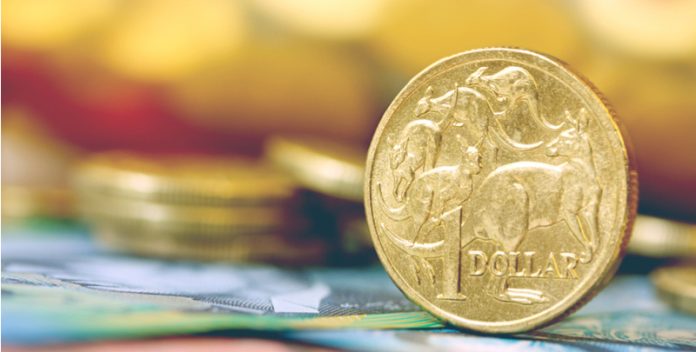- Australian Dollar (AUD) rallies as PM extends fiscal stimulus
- Retail sales jump +2.4% adding to May’s 16.9% surge, although signs of stock piling appear
- US Dollar (USD) dives despite rising US – China tensions as Trump orders China to close consulate in Houston
- Trump warns coronavirus outbreak could get worse before it gets better
The Australian Dollar US Dollar exchange rate is extending gains for a third straight day. The pair settled on Tuesday +1.6% at US$0.7128. At 13:45 UTC, AUD/USD trades +0.4% at US$0.7155 after hitting a 15-month high of US$0.7182.
The Australian Dollar is roaring higher on stimulus optimism despite fears over a second wave of coronavirus in Australia.
Australian Prime Minister Scott Morrison announcing the extension of the JobKeeper programme has gone down well with investors. The programme has been pushed out until March next year in the hope of keeping more Australians working in the private sector supported until the economy gains momentum and can transition back.
The extension of the stimulus package comes as the growing number of coronavirus cases in Australia is causing alarm among government officials. Melbourne, Australia’s second largest city is already back under lockdown.
Retail sales were also supportive of the Australian Dollar, increasing +2.4% in June, a solid reading following the 16.9% surge in May. However, there is growing evidence of stock piling again as fears grow over more lock down restrictions.
The US Dollar is trading at a 4-month low versus a basket of currencies (the Dollar Index) despite a risk off mood in the market and other safe haven assets, such as gold soaring.
Elevated US – China tensions are adding to the risk off climate as Trump orders China to shut its consulate in Houston in an unprecedented move. Usually the US Dollar advances when geopolitical tensions rise. However, that is not the case today.
There are several factors contributing to US Dollar weakness. Firstly, the Euro is enjoying a surge in popularity thanks to EU leaders agreeing to a €750 billion EU recovery fund to help the countries most affected by the pandemic.
Additionally, President Trump’s comments that the coronavirus outbreak could get worse before it gets better has resulted in investors turning their back on the US owing to a lack of confidence from the White House.





